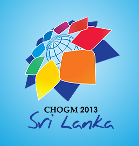Editorial , Ceylon Today
The challenges before the Heads of Governments of Commonwealth nations who are meeting in Colombo for the biennial summit, the Commonwealth Heads of Government Meeting (CHOGM), are enormous, and yet could be more matter-of-fact than most pundits and academics would articulate. The forum that has transformed the City of Colombo into one giant carnival, has already suffered two body blows in the decisions made by the heads of two leading democracies, Canada and India, but the heads of other leading democracies, Great Britain, Australia and New Zealand included, could give the event the clout it requires to make the Commonwealth matter in the 21st century.
The liberal democratic values of human liberty, media freedom, right to information, judicial independence, political accountability and transparency, if properly articulated by the leading protagonists of the cause of democracy, political justice and fair-play, would prove to be invaluable lessons for the Sri Lankan polity in particular and the Asian region in general.
However, if on the contrary, the Commonwealth countries and their leaders opt to engage in parochial and unsophisticated politicking in order to create political advantages in their own respective locales, the fundamental objectives of the CHOGM and its advancement would be lost forever. The money, manpower, building of infrastructure, promotion of social intercourse, exchange of political thought and ideologies would be misplaced endeavours, with regrets rather than celebrations becoming the legacy of the 23rd CHOGM.
More than any other time, the world today is facing extremely difficult options. Confronted with self-defeating choices, its slow but sure advance towards political vagueness is increasing pressures placed on the leaders of some pivotal governments, whose economies are more flexible and steadfast than others. Those countries who are late entrants to the Commonwealth are still at the infant stages of the development process. Their snail-like pace at economic and political development cannot be measured in years, for they may be changing every other month. Such political instability, especially in the region of Africa, is offering enormous challenges to the rest of the 'rich' members of the Commonwealth.
In the absence of economic stability, the political hold of the leaders of these countries may be facing decisive phases in the coming months. Terrorism as a means to political power has had its value. Although most of the decent world has come to discard terrorism as a vehicle to seats of power, the lure of profits involved in the trade of arms and ammunition, which is the main 'currency' in the marketplace of terrorism, would continue to attract those elements who dwell on the threshold; their greed to attain power 'overnight' and the seemingly easy access to such power are still very relevant and predominant factors.
That is precisely why the leaders of the Commonwealth nations should choose a more enlightened course of action. Otherwise, the 23rd CHOGM would end up being ridiculed as the 'Colombo Holiday on Government Money,' with shop talk and palaver, requiring the Commonwealth to justify its existence.
Sri Lanka must take this opportunity, not just to show its organizing prowess and post-war grandeur, but to embrace the spirit and principles of the CHOGM and be willing to assimilate fresh ideas and programmes, and whose final goal should be the wellbeing of its people. The glory of hosting the Commonwealth Heads of Government Meeting should be second to the real results of the event, which should be an all-encompassing resolution on upholding of human rights, right to information, independence of the Judiciary and all other social values which are held aloft in the Western world, yet seems unreachable by Asian countries.
In the context of the specific allegations made against Sri Lanka, and the inclusion of the maker of the controversial movie that made those allegations in his team of delegates by the British Prime Minister, are indeed serious deeds one cannot ignore. The proposed visits to the North by some of these leading delegates could be an enriching experience not only for the delegates but more so for the local politicians who have chosen to bury their heads in the sand. Lessons are many, if only one is willing to learn.
CT

